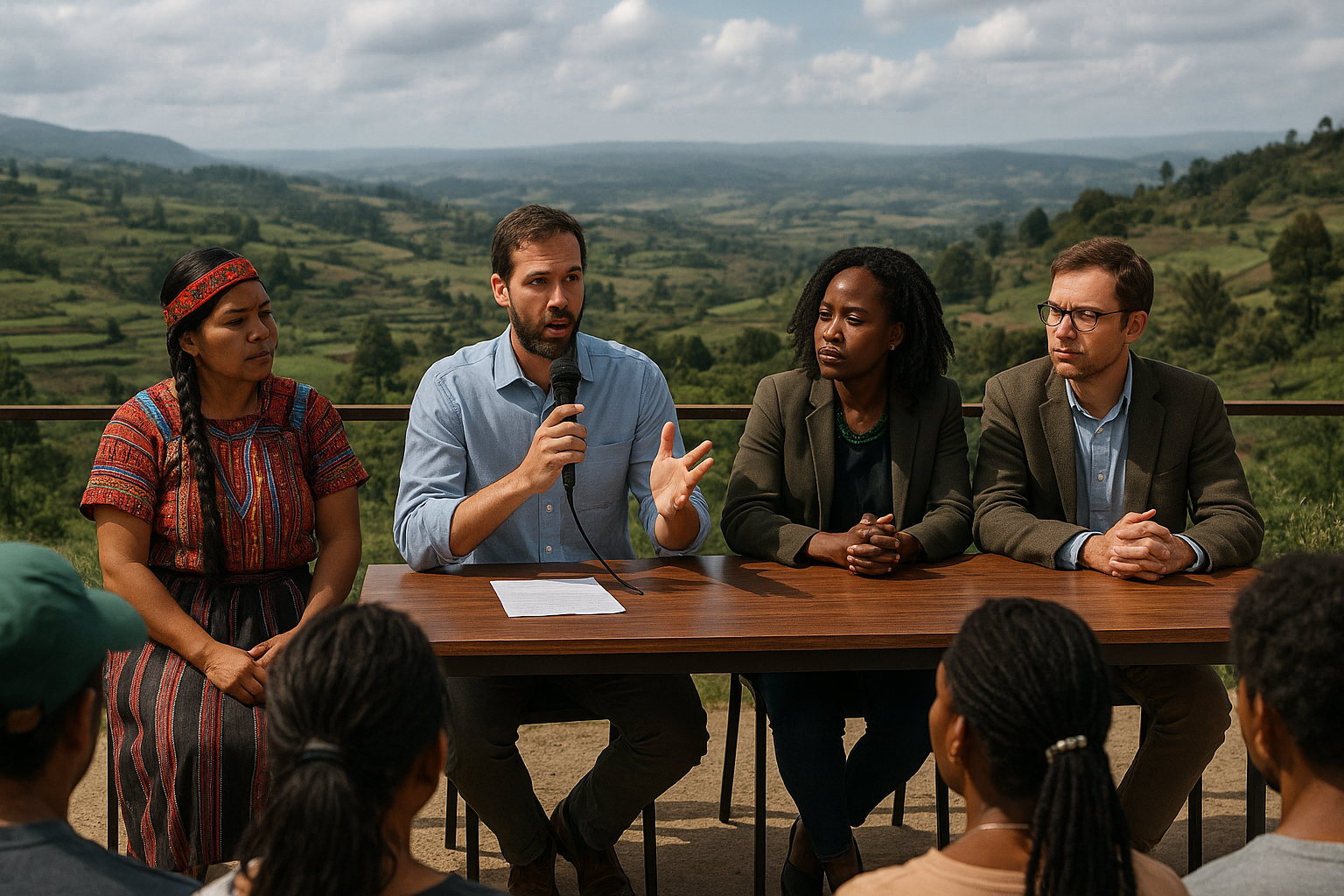Ancient Wisdom for Modern Crisis: Protecting Indigenous Knowledge in Climate Action
The World Bank’s report highlights Indigenous and Local Knowledge (ILK) as a vital, yet underutilized, resource for climate assessment, adaptation, and mitigation. It urges rights-based, collaborative approaches to protect ILK from erosion and integrate it meaningfully into global climate policy.

The World Bank’s 2025 report “Indigenous Knowledge, Local Knowledge, and Climate Change: Interconnections for Policy and Practice” offers a deep exploration of how Indigenous Peoples and local communities (IPLCs) are not only vulnerable to climate disruption but uniquely equipped to mitigate and adapt to it. Authored by anthropologist Stanford Zent, drawing on decades of ethnographic fieldwork and supported by institutions such as the Venezuelan Institute for Scientific Research (IVIC), the Intergovernmental Panel on Climate Change (IPCC), and the United Nations Permanent Forum on Indigenous Issues (UNPFII), the report positions Indigenous and Local Knowledge (ILK) as a vital epistemological and practical resource in the global climate effort. Through rich case studies and policy analysis, the report underscores how IPLCs have historically observed and responded to ecological variability with precision, resilience, and creativity, qualities that modern science and policy circles are increasingly beginning to acknowledge and learn from.
Ancient Tools for Modern Climate Challenges
ILK encompasses a wide range of place-based knowledge systems, passed down through generations via oral traditions, ceremonies, daily practices, and ecological stewardship. The report emphasizes that ILK is far from static; it is a dynamic, adaptive system attuned to environmental signals, manifested in traditional calendars, weather forecasting, land management, and spiritual values. Indigenous communities in Latin America, especially in the Amazon, monitor plant cycles, rainfall patterns, wildlife behavior, and seasonal transitions with an intimacy that satellite imagery and climate models cannot fully replicate. These systems offer a form of high-resolution, qualitative data that complements scientific approaches. Forest management is one striking example: IPLCs collectively care for 36 percent of the world’s intact forests and 45 percent in the Amazon, often achieving lower deforestation rates than even officially protected areas. Such stewardship is linked not only to ecological knowledge but to deep-rooted cultural values that emphasize reciprocity, responsibility, and sustainability.
Three Pathways: Integration, Justice, and Co-creation
The report identifies three dominant policy frameworks for engaging ILK: integration, justice, and collaborative action. The integrationist approach promotes the blending of ILK with scientific research to enhance climate modeling and data collection. Projects like the Arctic Climate Impact Assessment and the EU’s LICCI initiative exemplify this method, but critics argue that such integration often results in one-way knowledge extraction. The justice approach, advanced by Indigenous-led networks such as COICA and the International Indigenous Peoples’ Forum on Climate Change, calls for full recognition of IPLCs as climate leaders. It pushes for legal land rights, equitable participation, and the dismantling of colonial governance structures. Finally, the collaborative action approach emphasizes co-production of knowledge, where IPLCs and scientists jointly define problems, create solutions, and evaluate outcomes. This model is gaining traction in places like the Pacific Northwest Tribal Climate Change Network and CIFOR-led adaptation programs in Africa, highlighting its value in building long-term partnerships grounded in mutual respect.
Threatened Wisdom in a Warming World
While ILK is increasingly recognized in climate circles, the report also paints a sobering picture of its fragility. Climate change is not just a domain of ILK application; it is now a driver of its erosion. Zent identifies three interlinked processes threatening ILK: desynchronization, where rapid ecological shifts undermine traditional seasonal indicators; displacement, which severs communities from their ancestral lands; and erosion, as younger generations lose access to cultural knowledge due to modernization, language loss, and habitat degradation. For instance, when climate patterns change too quickly for traditional forecasting to remain reliable, trust in ILK systems falters. Similarly, when youth migrate to urban areas or are displaced by extractive industries or environmental disaster, the continuity of ILK is broken. These trends, coupled with limited inclusion of ILK in national climate adaptation plans, present serious risks not only to cultural survival but to the sustainability of local and global ecosystems.
A Blueprint for Inclusive Climate Action
Despite these challenges, the report presents a roadmap for embedding ILK into climate governance. It calls for a rights-based approach, where IPLCs are recognized not just as stakeholders but as rights-holders with the authority to manage their lands and shape environmental policy. Key recommendations include securing land tenure for IPLCs, supporting community-led adaptation strategies, developing new indicators to track ILK vitality, and increasing empirical research through ethnographic and cross-cultural comparative studies. The World Bank’s initiatives, such as Amazonia Viva and regional Climate Action Plans, are cited as examples of policy alignment with these goals. Zent emphasizes that meaningful engagement with ILK requires not only integrating Indigenous insights into data systems but also respecting the values, worldviews, and governance traditions that sustain them.
The report reframes climate resilience as a collective task, demanding the synthesis of scientific and traditional knowledge. It urges policymakers, researchers, and development institutions to abandon extractive models of engagement and embrace a truly intercultural approach to climate action. ILK emerges not as a relic of the past but as a sophisticated, living framework that has long guided human adaptation to environmental change, and may well hold the key to navigating an uncertain ecological future.
- FIRST PUBLISHED IN:
- Devdiscourse
ALSO READ
World Bank Report Charts Path to Gender Equality and Inclusion in Botswana
Cameroon’s Green Gold: World Bank Calls for Forest-Led Growth and Fiscal Reform
World Bank: Reforms Could Propel Philippines to 7% Growth, Middle-Class Future
World Bank VP Concludes Visit to Bangladesh, Reaffirms $3B Support for Growth
World Bank Launches $127.5M Social Inclusion Project to Benefit 12M Kenyans










